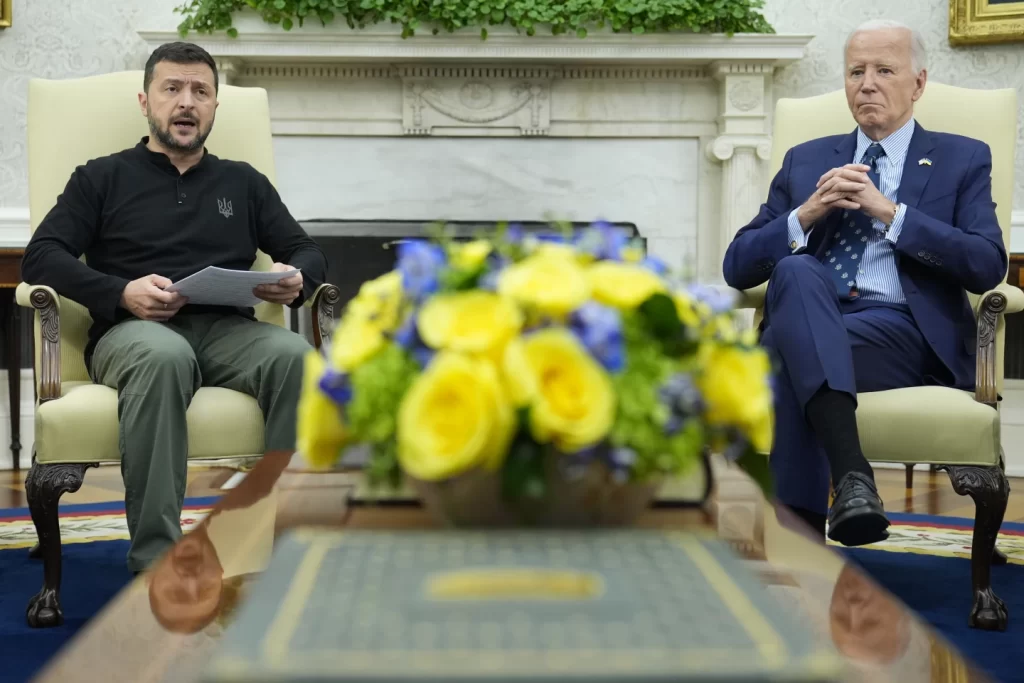President Joe Biden has authorized Ukraine to strike deeper inside Russian territory using U.S.-supplied long-range missiles, marking a significant shift in weapons use policy as Russia deploys thousands of North Korean troops along Ukraine’s northern border, according to U.S. officials speaking on condition of anonymity.

The decision to expand the use of Army Tactical Missile Systems (ATACMS) comes amid mounting pressure from Ukrainian President Volodymyr Zelenskyy and Western allies, who argue that previous restrictions hampered Ukraine’s ability to counter Russian attacks on cities and power infrastructure.
“Strikes are not made with words,” Zelenskyy said in his nightly address Sunday, maintaining a notably measured response. “Such things are not announced. The missiles will speak for themselves.”
The policy change follows President-elect Donald Trump’s victory, which has raised questions about future U.S. support for Ukraine. Trump has promised to swiftly end the war and has criticized the Biden administration’s extensive military aid, which has totaled more than $56.2 billion since Russia’s February 2022 invasion.
Biden’s authorization coincides with intelligence assessments indicating up to 12,000 North Korean troops have joined Russian forces, particularly in the Kursk border region. U.S. and South Korean officials report North Korea has also provided significant munitions to replenish Russia’s depleted stockpiles.

The decision emerged after Biden’s meetings with South Korean, Japanese, and Chinese leaders at the Asia-Pacific Economic Cooperation summit in Peru, where North Korea’s military support for Russia dominated discussions.
The limited supply of ATACMS missiles has previously concerned U.S. officials, though supporters argue even minimal long-range strike capability could force Russia to alter its military deployments. The Biden administration had initially restricted Ukraine to using U.S.-provided weapons for limited cross-border strikes, only gradually expanding authorized capabilities under pressure from allies.
United Nations Secretary-General Antonio Guterres responded cautiously to the development, stating the UN’s position is “to avoid a permanent deterioration of the war in Ukraine” while advocating for “fair peace.”
The authorization comes as Ukraine faces renewed challenges, including a massive Russian drone and missile attack on energy infrastructure that officials described as the largest in recent months. Eight civilians died in one strike on a nine-story building in Sumy, prompting Zelenskyy to criticize attempts at diplomatic engagement with Russian President Vladimir Putin.
The Biden administration’s shift represents its latest concession on advanced weapons systems, following previous reversals on tanks, Patriot air defense systems, and F-16 fighter jets that were initially denied to Ukraine.
AP



